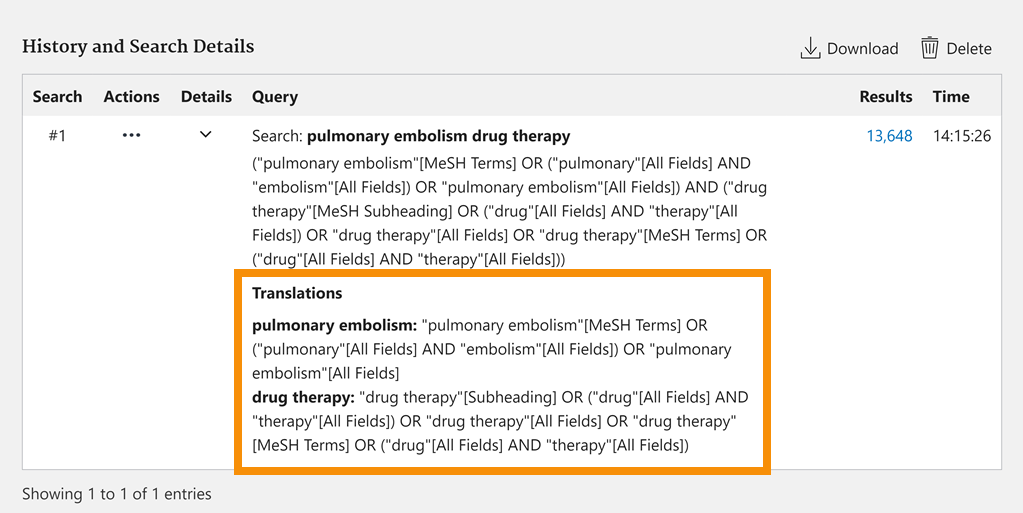How Do I Search the Non-MEDLINE Set In PubMed?
What am I missing if I restrict my search to MeSH?
Not every PubMed record is indexed with MeSH. Around 5 million of the more than 35 million records in PubMed are not MEDLINE and do not have MeSH applied. These records should not be ignored. Many are from journals in PubMed Central (PMC) and/or are records that describe research that was funded by the National Institutes of Health. If you’re doing a thorough search of PubMed, you’ll need to do more than search with MeSH.
To find a few relevant articles on a topic, the essential part of searching is carefully considering the topic and keeping your syntax simple. If your search terms describe your concepts well, PubMed’s automatic term mapping (ATM) and relevance ranking (“Best Match”) algorithms should make finding a few good articles very easy for most topics. However, if your goal is to conduct a thorough or systematic search of a topic, you must consider how to search both MeSH-indexed and non-indexed records.
Tools for Keyword Searching
PubMed includes some additional tools that can be useful for searching non-MEDLINE records by topic, or for retrieving records for concepts not described in MeSH, including phrase searching (described above), truncation, proximity searching, and the use of Boolean operators (AND, OR, and NOT).
These tools are described in the PubMed User Guide:
- Searching for a phrase
- Truncating search terms
- Proximity searching (see also the Proximity Searching Quick Tour )
- Combining search terms with Boolean operators (AND, OR, NOT)
Note that forcing a phrase search, truncating, and proximity searching bypass automatic term mapping. Your terms will not map to MeSH and will not explode to include more specific concepts. For searches of medical concepts, these techniques should be used to supplement and not replace a search using MeSH. Consult with a health sciences librarian for guidance on the best use of these tools in PubMed.
Splitting MEDLINE and non-MEDLINE Record Sets
Let’s return to a previous example topic: pulmonary embolism drug therapy.
This search will retrieve relevant results from PubMed. However, for maximum control, you may wish to split your search into two searches using MeSH (for MEDLINE records) and searches using keywords (for non-MEDLINE records, using the tools described above). You can search the MEDLINE and non-MEDLINE records separately as follows:
For MEDLINE Records
Search using MeSH terms by tagging (or building the search in the MeSH Database): pulmonary embolism/drug therapy[mh]
For Non-MEDLINE Records
Search using keywords and NOT medline[sb]: (pulmonary embolism AND (drug* OR pharm*)) NOT medline[sb]
[sb] is a search tag for “Subset.” The MEDLINE subset is the set of PubMed records that come from MEDLINE journals and have been indexed with MeSH.
Translations
Remember that you can view your full search details, including the term variations that PubMed is adding to your search, by clicking Advanced and scrolling to History and Search Details. The Translations section breaks down your search by concept.
PubMed adds MeSH and may add plurals and spelling variants, but PubMed will not add synonyms or MeSH entry terms to your search automatically.
Search Numbers
You can also test or combine your searches using the search numbers:
Consult with your librarian for assistance with your searches.


